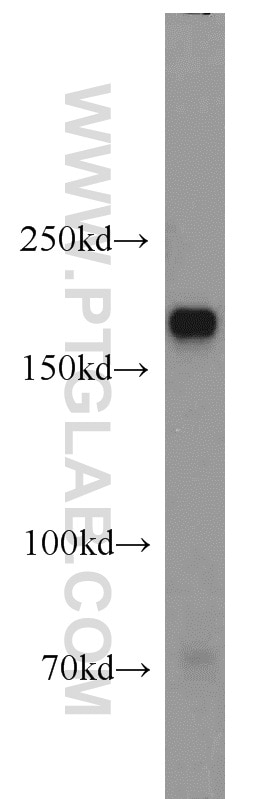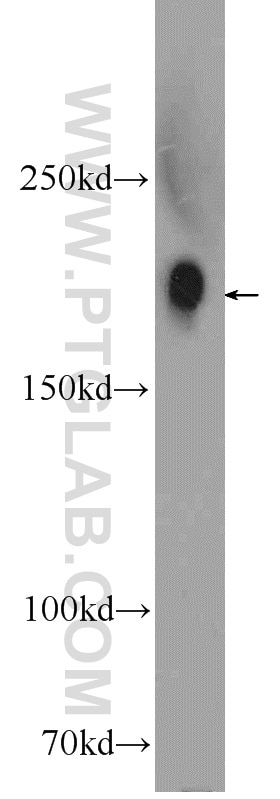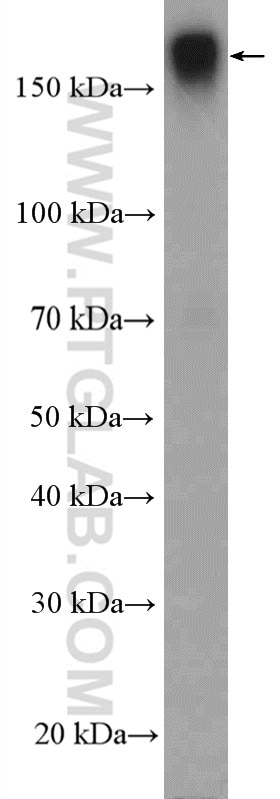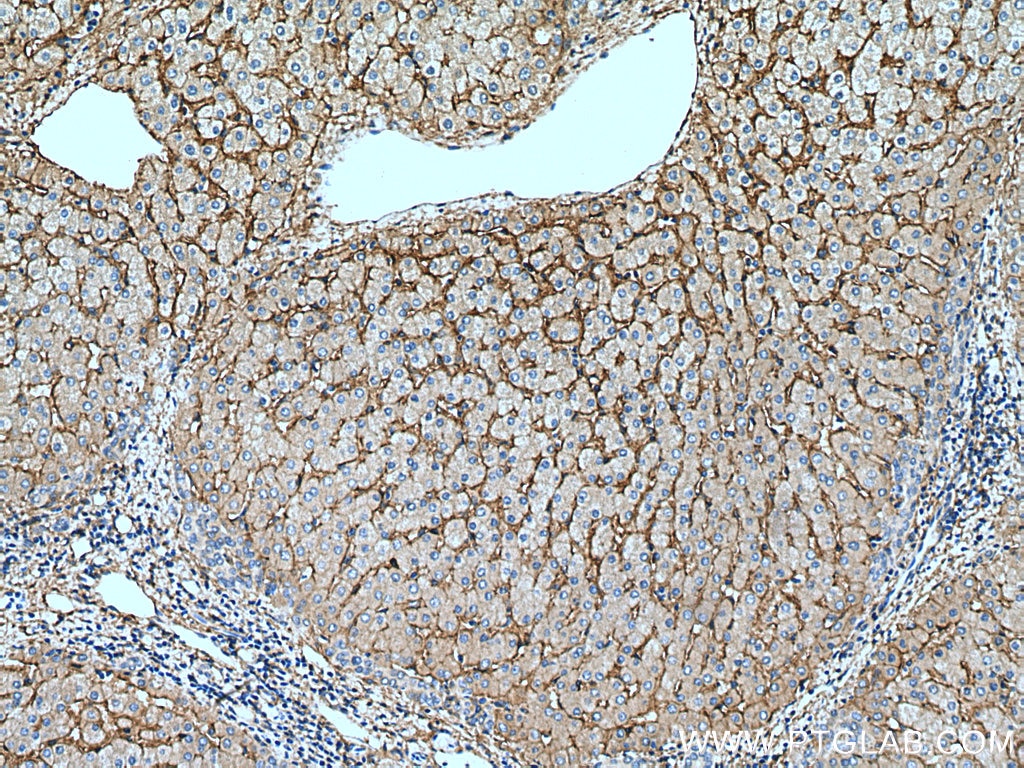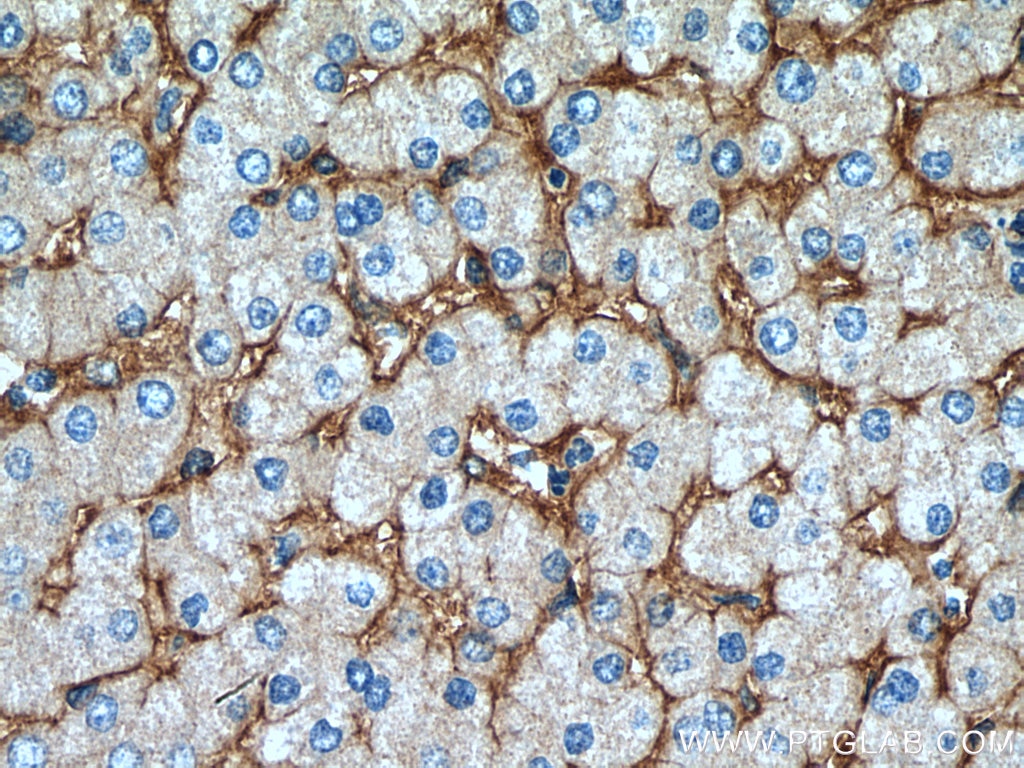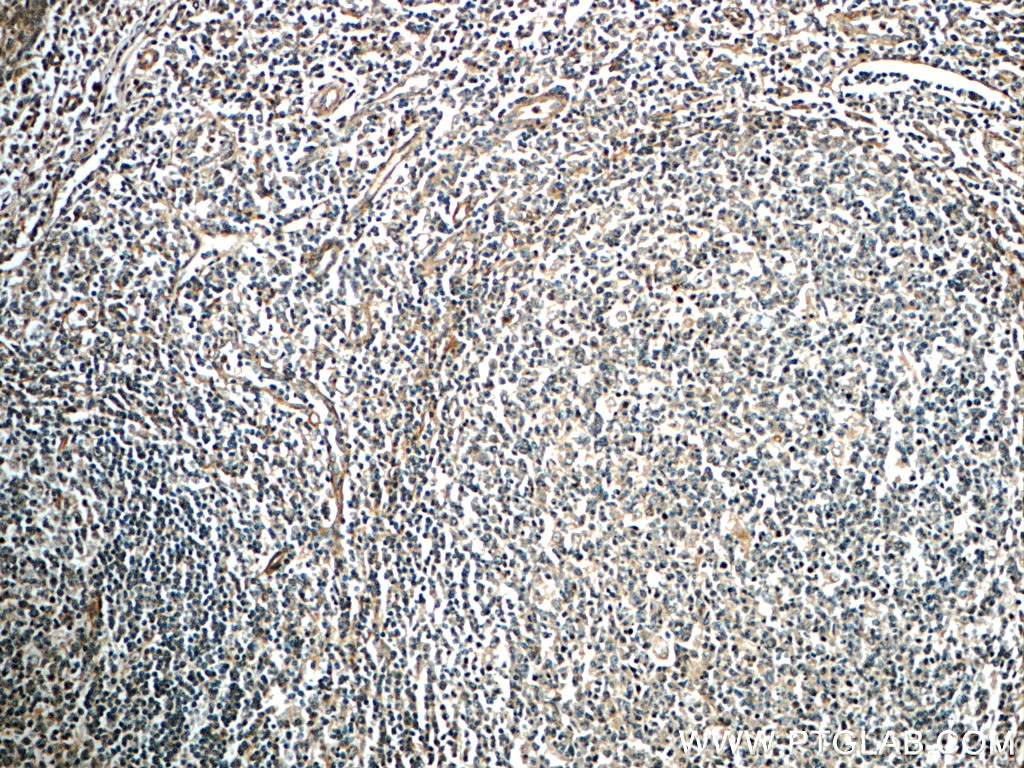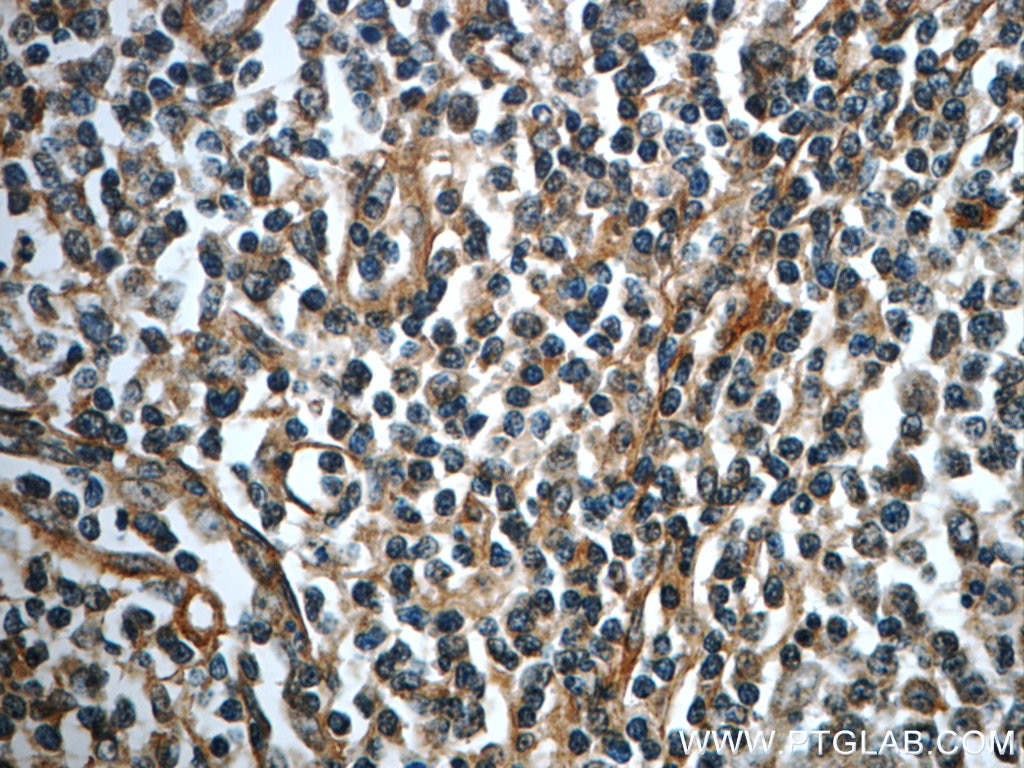- Phare
- Validé par KD/KO
Anticorps Polyclonal de lapin anti-Integrin alpha 1
Integrin alpha 1 Polyclonal Antibody for IHC, ELISA
Hôte / Isotype
Lapin / IgG
Réactivité testée
Humain et plus (2)
Applications
WB, IHC, ELISA, IF
Conjugaison
Non conjugué
N° de cat : 22146-1-AP
Synonymes
Galerie de données de validation
Applications testées
| Résultats positifs en IHC | tissu hépatique humain, tissu d'amygdalite humain il est suggéré de démasquer l'antigène avec un tampon de TE buffer pH 9.0; (*) À défaut, 'le démasquage de l'antigène peut être 'effectué avec un tampon citrate pH 6,0. |
Dilution recommandée
| Application | Dilution |
|---|---|
| Immunohistochimie (IHC) | IHC : 1:50-1:500 |
| It is recommended that this reagent should be titrated in each testing system to obtain optimal results. | |
| Sample-dependent, check data in validation data gallery | |
Applications publiées
| KD/KO | See 1 publications below |
| WB | See 8 publications below |
| IHC | See 2 publications below |
| IF | See 2 publications below |
Informations sur le produit
22146-1-AP cible Integrin alpha 1 dans les applications de WB, IHC, ELISA, IF et montre une réactivité avec des échantillons Humain
| Réactivité | Humain |
| Réactivité citée | rat, Humain, souris |
| Hôte / Isotype | Lapin / IgG |
| Clonalité | Polyclonal |
| Type | Anticorps |
| Immunogène | Integrin alpha 1 Protéine recombinante Ag17584 |
| Nom complet | integrin, alpha 1 |
| Masse moléculaire calculée | 1179 aa, 131 kDa |
| Poids moléculaire observé | 180 kDa |
| Numéro d’acquisition GenBank | BC137121 |
| Symbole du gène | Integrin alpha 1 |
| Identification du gène (NCBI) | 3672 |
| Conjugaison | Non conjugué |
| Forme | Liquide |
| Méthode de purification | Purification par affinité contre l'antigène |
| Tampon de stockage | PBS avec azoture de sodium à 0,02 % et glycérol à 50 % pH 7,3 |
| Conditions de stockage | Stocker à -20°C. Stable pendant un an après l'expédition. L'aliquotage n'est pas nécessaire pour le stockage à -20oC Les 20ul contiennent 0,1% de BSA. |
Informations générales
The integrins are a superfamily of cell adhesion receptors that bind to extracellular matrix ligands, cell-surface ligands, and soluble ligands (PMID: 17543136). They are transmembrane αβ heterodimers and at least 24 distinct integrin heterodimers are formed by the combination of 18 α and eight β known subunits (PMID: 17543136; 20029421). In addition to mediating cell adhesion, integrins also play important roles in modulating signal transduction pathways that control cellular responses including migration, proliferation, differentiation, and apoptosis (PMID:19118207). Integrin alpha-1 (ITGA1, CD49a) combines with the beta 1 subunit (ITGB1, CD29) to form a cell-surface receptor for collagen and laminin. This receptor is involved in cell-cell adhesion and may play a role in inflammation and fibrosis. Integrin alpha-1 is a transmembrane glycoprotein with an apparent molecular weight of 180-250 kDa, larger than the calculated molecular weight of 131 kDa (PMID: 2475259; 3257425; 11557277; 18840653).
Protocole
| Product Specific Protocols | |
|---|---|
| WB protocol for Integrin alpha 1 antibody 22146-1-AP | Download protocol |
| IHC protocol for Integrin alpha 1 antibody 22146-1-AP | Download protocol |
| FC protocol for Integrin alpha 1 antibody 22146-1-AP | Download protocol |
| Standard Protocols | |
|---|---|
| Click here to view our Standard Protocols |
Publications
| Species | Application | Title |
|---|---|---|
Int J Biol Sci Integrin α1 promotes tumorigenicity and progressive capacity of colorectal cancer.
| ||
Int J Oncol Downregulation of METTL6 mitigates cell progression, migration, invasion and adhesion in hepatocellular carcinoma by inhibiting cell adhesion molecules | ||
J Ethnopharmacol A combination index and glycoproteomics-based approach revealed synergistic anticancer effects of curcuminoids of turmeric against prostate cancer PC3 cells. | ||
Int J Oncol FAM83A exerts tumor‑suppressive roles in cervical cancer by regulating integrins. | ||
Med Sci Monit 17β-Estradiol Protects Rat Annulus Fibrosus Cells Against Apoptosis via α1 Integrin-Mediated Adhesion to Type I Collagen: An In-vitro Study. |
Avis
The reviews below have been submitted by verified Proteintech customers who received an incentive forproviding their feedback.
FH Boyan (Verified Customer) (04-24-2019) | This antibody labelled a band above 250 kD, which is likely the glycosylated form of Itga1. But, it did not label any band around 170 kD as shown in the data sheet.
|
